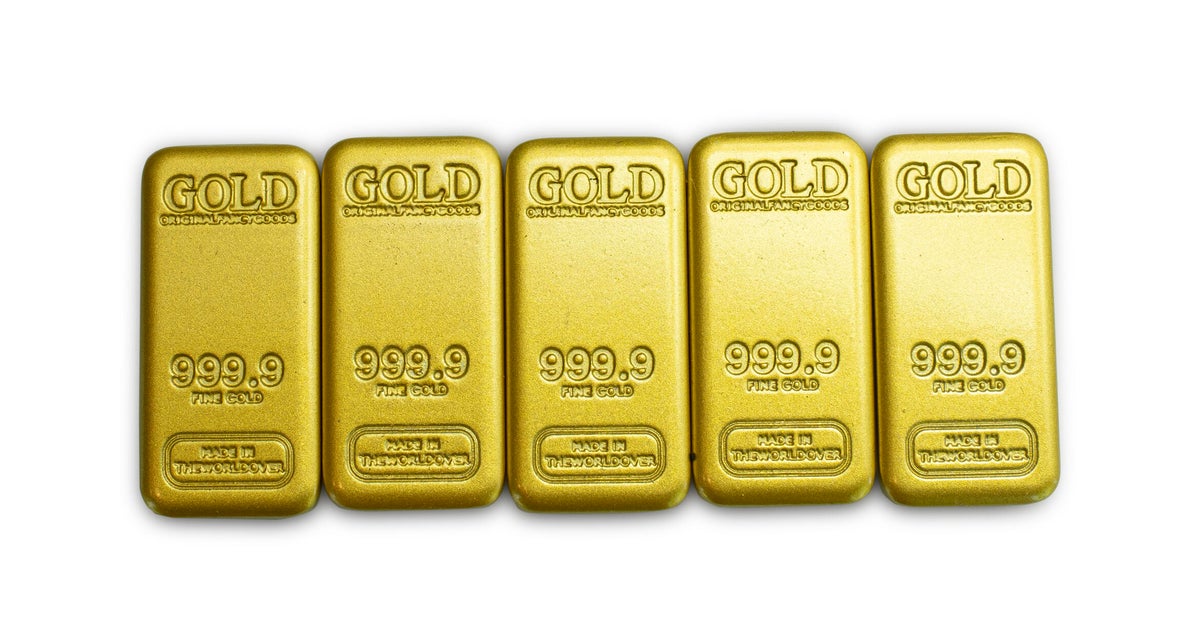How gold can protect investors during a recession
After years of high inflation, whispers of an upcoming recession are nothing new. But the speculation gained new weight this week when the Federal Reserve released minutes officially forecasting a recession.
The minutes specifically predicted a "mild recession," but even that was enough to send stocks downward and cause experts to speculate on the effects this will have on the economy. With investors already spooked by interest rate hikes and bank failures, it's no wonder they're increasingly looking for a safe place to keep their money.
Investing your money in stable assets will be crucial if the U.S. does enter a recession. One of these investments is gold.
There are many reasons gold is a worthwhile investment. It provides reliable returns, is highly liquid and isn't generally susceptible to market fluctuations the way other asset classes are. It's a wise choice in any economic climate, but it can be particularly valuable in a recession. In this article, we will explore why.
If you're considering investing in gold, request a free information kit now to learn more.
How gold protects investors from a recession
With many expecting a recession, now is a good time to invest in gold. Here are three reasons why.
Its price often rises in a recession
Historically, gold prices have had an inverse relationship with recessions. The weaker the economy, the higher the price of gold as investors turn to it as a safe haven for their money.
Following the release of the Fed's minutes, gold spot prices rose to $2,042.49 per ounce, according to Reuters. That's the highest it's been since March 2022 and nearly as high as the record in 2020 (another recessionary period). Gold futures also rose, reaching $2,056.90.
If recession fears are realized, there's a good chance gold prices will go even higher. Investing in gold now allows you to capitalize on any resulting increases.
Explore your gold investing options by getting a free information kit today.
It can stabilize your portfolio
To maximize returns and minimize risk, you should include a variety of asset classes in your portfolio. That way, when one type of investment takes a hit, another type of investment can offset the losses.
Gold is known for maintaining its value when other investments falter. For example, stocks tend to plummet in a recession. After the Fed's minutes were released, the S&P, Nasdaq composite and Dow all fell. Gold's value, on the other hand, has held steady throughout numerous periods of economic turmoil, making it a valuable part of a diversified portfolio.
It provides a cash reserve
One of the effects of a recession is increased unemployment. In a recession, people tend to have less disposable income, so demand for goods and services declines. As a result, companies aren't able to generate as much revenue, so they lay off employees to cut costs. Should you be one of these unfortunate employees, you may find yourself in need of cash to bridge budget gaps.
Gold is highly liquid compared to other investments, which means you can quickly trade it in for cash. And since its value tends to be higher in a recession, that means you can get more cash from your initial investment than you might at other times. It can be a valuable safety net when inflation is on the horizon.
Ready to start investing in gold? Learn more here!
The bottom line
In times of economic uncertainty, investors should do everything they can to protect their money. Investing in gold can be a great way to do this. But, as with any investment, it has its pros and cons. It's important to weigh them against your goals and do your research to make sure you understand your options. When in doubt, a financial advisor can help guide you.




